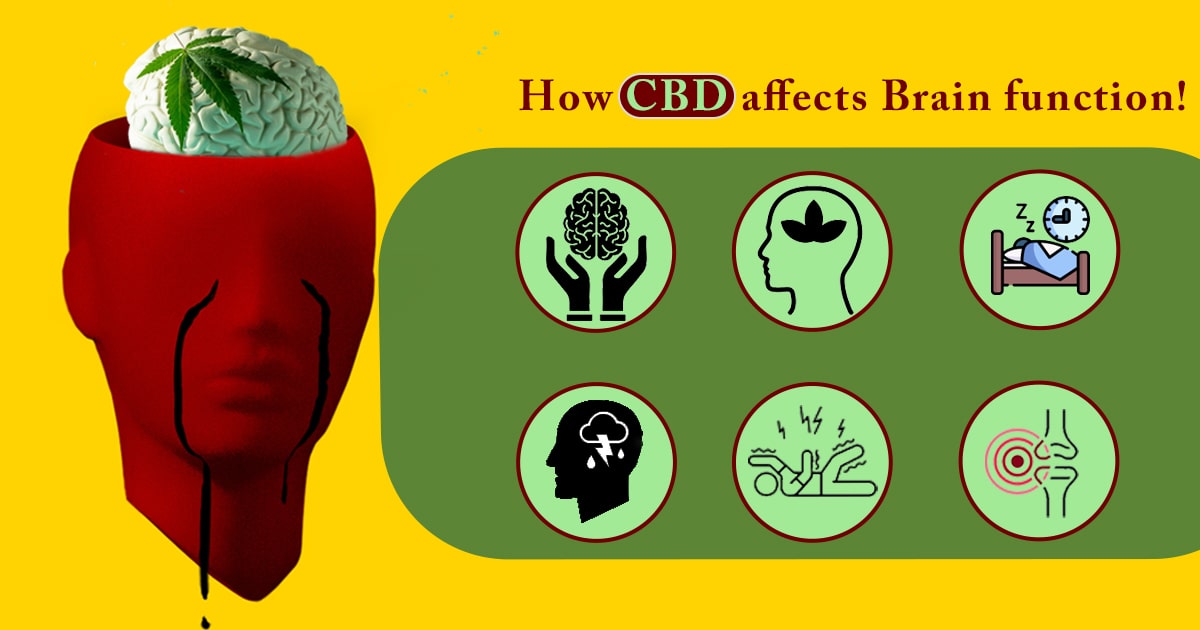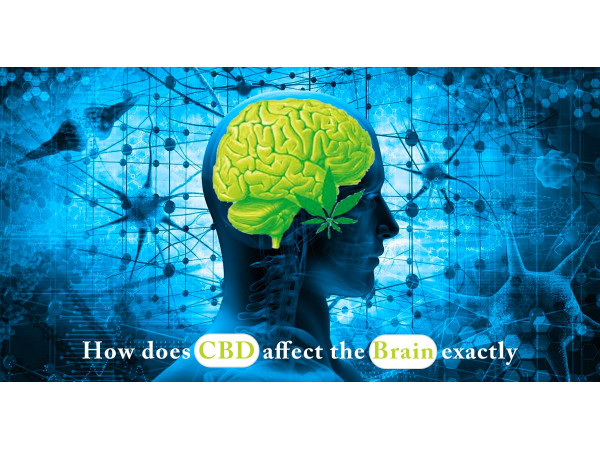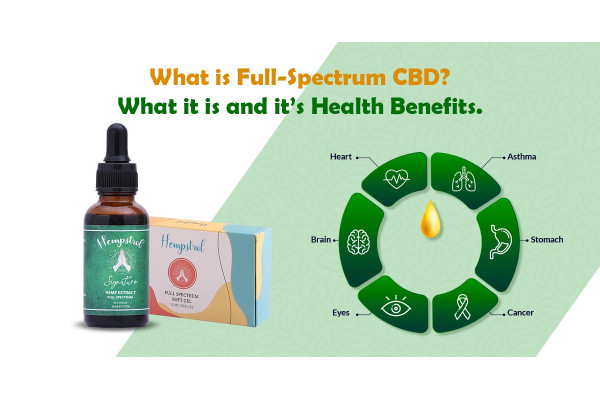How Does Cbd Affect the Brain Exactly?
Today, CBD is widely available. You've probably seen advertisements for CBD or perhaps even lotions that include CBD and hemp and other natural components. The popularity of CBD has increased over the past few years. This is due to the rise in alternative medicine use among people looking for relief from common, everyday problems. Even while there is still much to learn about CBD's benefits, studies suggest that it may be beneficial for people who suffer from illnesses including anxiety, chronic pain, insomnia, depression, and other issues.

What exactly is CBD?
Cannabidiol, or CBD, is a naturally occurring substance found in hemp. Even though it is frequently compared to and mistaken with THC, its effects are completely different. There are no psychotropic effects of CBD. This implies that it won't make you feel high or altered. Instead, cannabidiol oil India contains healing advantages, including the capacity to soothe the body and mind.

How CBD affects brain function
CBD interacts with the endocannabinoid system when consumed, particularly the CB1 and CB2 receptors. The ECS is found all across the body and is important for many biological processes. The ECS, for instance, affects inflammation, metabolism, immunological response, appetite stimulation, and even how the body handles pain. When you consume CBD, it works with the ECS which in turn helps to reduce pain and inflammation and lowers stress levels and other whole-body benefits.
Protects the brain: One of the most frequent reasons for brain tissue injury is oxidation. Additionally, it contributes to the brain damage seen by people. According to research, CBD also has neuroprotective qualities, which means that it protects the brain from injury or damage caused due to oxidative stress. CBD interacts with CB2 receptors in the brain, which is known to have neuroprotective benefits. By inducing an anti-inflammatory response in immune cells in the brain, CBD is an effective treatment for protecting the brain. As a result, there is less brain damage brought on by inflammation.
Reduces stress: Another prevalent illness that affects us all at some point in our lives is stress. While some level of stress is normal, a persistent condition of stress can negatively affect your health. Your body enters a constant state of fight or flight as a result of chronic stress. Your physical, mental, and emotional health may be affected by this. There are several effective strategies to minimize the effects of stress, but CBD is one such natural alternative that most people are trying out. According to research, CBD alters the blood flow patterns to specific parts of the brain, which alters how the brain responds to anxiety.
Better Sleep: Many people have trouble getting the restful sleep they require. This affects both your emotional and physical health in addition to making for sleepy mornings. While some struggle with racing thoughts, others struggle to find comfort because of persistent pain. CBD has a direct impact on both the quantity and quality of sleep since it helps to calm the mind and body while also reducing discomfort. CBD helps you to sleep peacefully.
Potential treatment for anxiety and depression: Because of its capacity to relax the body and mind, CBD is one of the most popular substances used today. Around the world, there are more than 300 million people who experience anxiety. Therapy, counseling, and prescription drugs have long served as the mainstays of treatment for mental health issues. Some people, however, may not get the desired outcomes from these options. According to research, CBD may reduce the number of symptoms of anxiety and depression. This occurs as a result of CBD's interactions with the brain's serotonin receptors. The neurotransmitter that influences mood and emotional state is serotonin. Particularly among people who suffer from depression and other mental health issues, balanced serotonin levels are important. Serotonin levels out of balance raise the danger of anxiety and anxiety.
Fights Seizures and Psychosis: CBD is useful for treating epilepsy. It appears to control seizures by reducing the level of excitation of brain cells involved in seizures. By promoting the release of the inhibitory neurotransmitter GABA, CBD blocks the brain processes that lead to seizures. CBD has antipsychotic properties as well. In the brain, CBD raises anandamide levels. Anandamide levels that are higher in the brain have been linked to a reduction in psychotic symptoms. Numerous health advantages of CBD make it an effective treatment for a variety of physical and mental health issues.
Reduces Pain and Inflammation: Cannabis products have been used for thousands of years to treat pain. While it is commonly known that THC Oil has the potential to reduce pain, research shows that CBD also has this ability. CBD works on CB2 receptors, which are primarily found on immune cells, to help reduce pain. Some cellular processes are controlled by the CB2 receptors. Suppressing the inflammatory response induced by immune cells is one of the biological processes CB2 receptors control. CBD reduces the levels of inflammatory chemicals at inflammatory sites, including chemokines and cytokines. By reducing peripheral inflammation, CBD helps prevent pain signals from reaching the brain.

How the Brain May Be Protected by CBD's Antioxidant Properties
Antioxidants are substances that protect against the harmful oxidative stress that our cells frequently experience as a result of various factors, such as free radicals from the environment. The antioxidant effects of CBD have been demonstrated through research, and these effects appear to protect the brain. Additionally, researchers have found that CBD has stronger antioxidant neuroprotective effects than other compounds known to have similar properties, such as ascorbate, alpha-tocopherol, vitamin C, and vitamin E.

What you should know before trying CBD
Despite the hype surrounding CBD, there is still much to learn about this compound and its effects on our bodies. Before considering whether or not cannabidiol is a wise addition to your regular health and wellness routine, there are a few things you should know about it in advance to achieve its benefits:
1. You won't get high from CBD
As was previously said, CBD doesn't contain any psychoactive qualities that cause you to feel high, in contrast to THC. Instead, the cannabinoid attaches to CB1 and CB2 nerve receptors which can reduce stress, pain anxiety, and inflammation while also promoting mental clarity.
2. Working with CBD takes time
CBD does not have instant therapeutic effects that you can experience after just one dose. Instead, finding the ideal dosage that offers the desired effects can take weeks. This is why you should always buy CBD-based products from a brand that provides online medical consultation to their consumers and hempstrol is one such brand that provides the same.
3. Type of form of CBD you consume dictates its result: How fast and strongly the adverse effects occur also depends on the type of CBD products you use. Softgel will have a different effect on your body than CBD oil.
4. Be patient: If you're a new CBD user, be patient with the results. It will take some time to find your perfect dosage and fully experience the results, but trial and error are worthwhile.
5. Start with a small dose: Rushing into it and taking a too-high dose is one of the first errors most of us make when experimenting with CBD for the first time. Many people believe that taking a large dose will result in their desired effects more quickly. However, ingesting a high dosage can backfire. Thus, the best way to introduce CBD into your daily routine is to start with low and slow dosing until you find the sweet spot.
Our knowledge of whether and how CBD can be used to treat a range of health and wellness issues is still in its early stages, but research is advancing and our expertise is developing. CBD is increasingly seen as a beneficial chemical to use therapeutically since it lacks intoxicating properties.


















